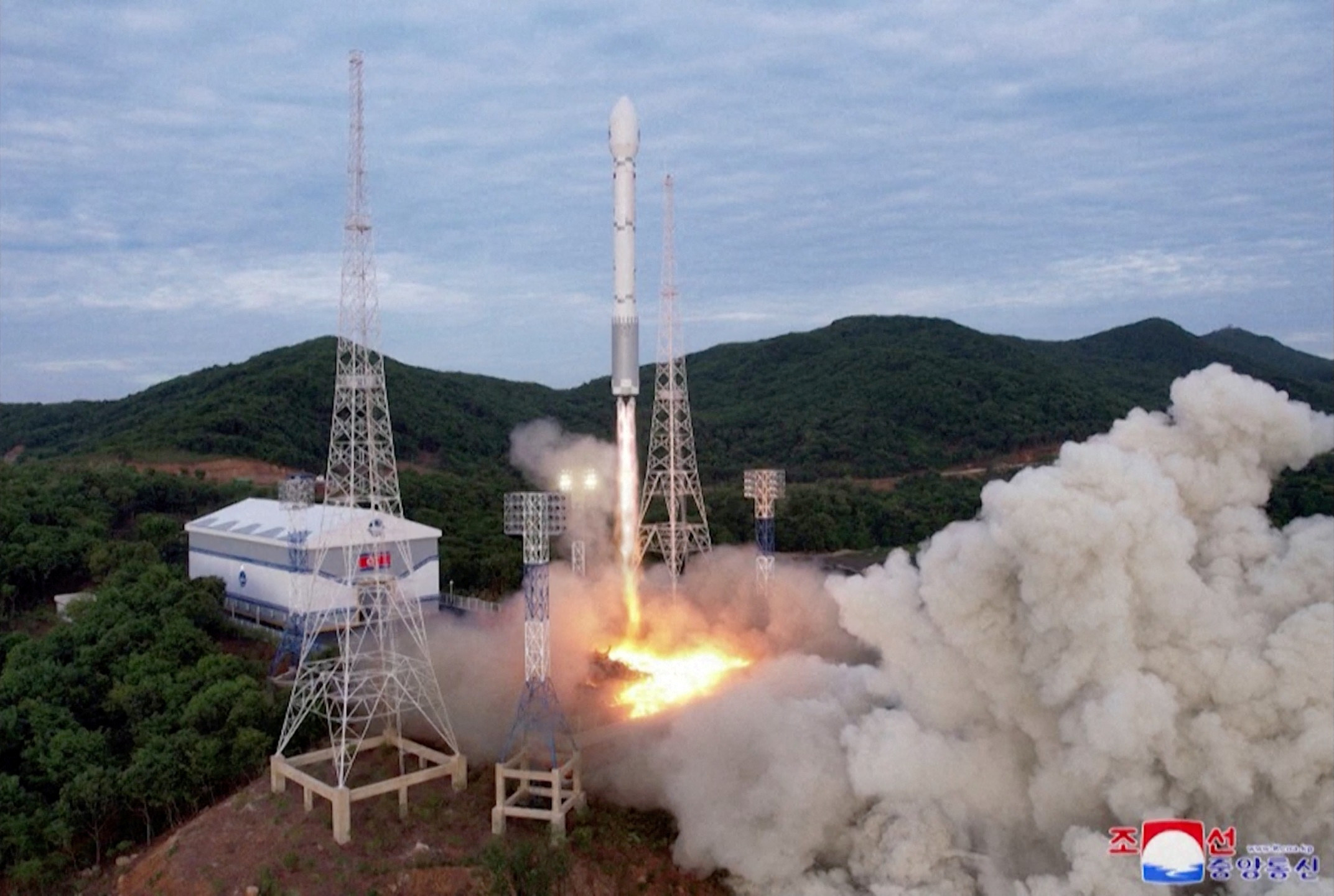Products You May Like
SEOUL, South Korea — North Korea said Aug. 24 its second attempt to launch a spy satellite ended in failure due to an “error in the emergency blasting system” during the third-stage flight.
The failed launch came about three months after the nation’s first attempt failed in May, when the new carrier rocket Chollima-1 crashed into the sea soon after liftoff. North Korea called the error “not a big issue in the aspect of the reliability of cascade engines and the system,” vowing to make another attempt in October, according to the North’s state-run Korean Central News Agency (KCNA).
The Chollima-1 rocket lifted off from a launch site in Tongchang-ri in North Pyongan Province at 2:40 p.m. Eastern Aug. 23 (or 3:50 a.m. Aug. 24 local time), the first day of the pre-announced week-long launch window, according to South Korea’s Joint Chiefs of Staff. The rocket flew southward, carrying a military reconnaissance satellite, Malligyong-1. It travelled above international waters between mainland China and the Korean Peninsula and crashed into an undisclosed location east of the Philippines, according to South Korea’s military. It did not reveal the presumed crash sites of the rocket’s boosters, payload fairing and others.
Japan’s defense ministry said the rocket appeared to have broken into multiple pieces and fell into the Yellow Sea west of the Korean Peninsula, the East China Sea southwest of the Korean Peninsula and the Pacific Ocean off the Philippines, according to Japanese broadcaster NHK. The ministry said the rocket appeared to have passed over Japan’s Okinawa Prefecture. There were no reports of casualties or property damage caused by the rocket.
The South Korean military said a search operation is underway, in collaboration with the U.S. military, to recover debris of the rocket to determine the technologies applied to the rocket and satellite. They are brand-new, suggesting their capacity and other technical details are largely shrouded in mystery.
In July, South Korea’s military said that recovered debris from the first launch indicated that technology applied to North Korea’s satellite was not yet sophisticated enough to fulfill reconnaissance objectives, even if it had been launched successfully.
The launch has been condemned by South Korea, the United States and Japan.
South Korea’s presidential office said the launch of the rocket violated U.N. Security Council resolutions that ban any launches by North Korea using ballistic technologies. Japan’s chief Cabinet secretary, Hirokazu Matsuno, called the North Korean launch a “threat to peace and stability.”
Adrienne Watson, a spokesperson for the White House’s National Security Council, said the United States strongly condemns the launch, adding that it involved technologies directly related to the North’s intercontinental ballistic missile program. Watson said Pyongyang must immediately cease its provocative actions and instead choose engagement.
